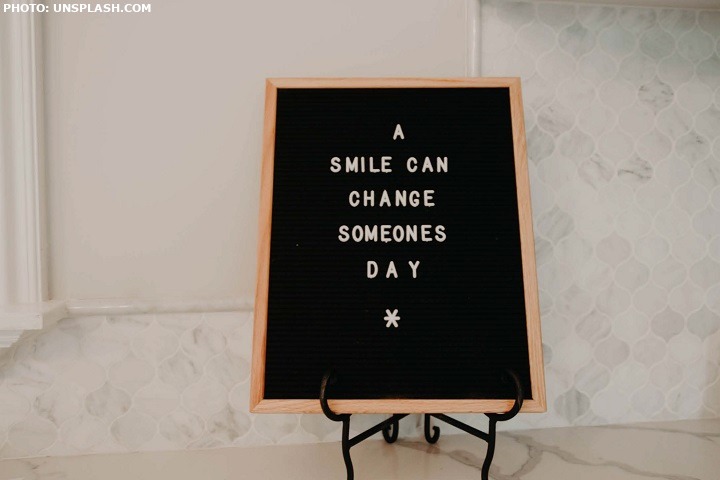WORDS: ELISABETH ESCOBAR, M.A., M.ED
If you are like most people, you have already let go of your New Year’s Resolutions. But don’t despair. Change is hard, but not impossible, even though it can feel that way sometimes. There has been considerable research on the process of change and it can be helpful to understand the process so that individuals can think more deeply about it. By understanding the process of change, we are more likely to sustain the change.
The Stages of Change Model, by Drs. Prochuska and Di Climente, demonstrates that most individuals go through the following changes:
Precontemplation – lack of awareness that life can be improved by a change in behavior. People in this phase often do not believe they need to make a change or they don’t believe a change is possible. They can sometimes be defensive if others suggest that they consider making a change.
Contemplation – recognition of the problem, initial consideration of behavior changes, and information gathering about possible solutions and actions. In this phase, individuals start to consider making the change. They may even start to discuss their feelings about what it would mean to make a change.
Preparation – introspection about the decision, reaffirmation of the need and desire to change behavior, and completion of final pre-action steps. In this phase, people often start to do “research’ and are more willing to consider asking for help in a concrete manner. They may agree to see a therapist who specializes in change, or a clergy member, or join a group that deals with the change they want to make.
Action – implementation of the practices needed for successful behavior change. Here, people often feel hopeful that change can be attained. They meet others who have made the change and realize support is of utmost importance. They put making the change above other things in an appropriate manner and they see the results of their actions.
Maintenance – consolidation of the behaviors initiated during the action stage. This is a stage where they feel quite confident and where they are cautioned to not get too confident or else a relapse could occur.
Termination – former problem behaviors are no longer perceived as desirable. People are usually quite firm in the belief of their new way of being. Going back to old habits would be hard for them to even imagine.
(It is important to note that most people go back and forth between these stages and it can take several attempts to change, before you make a lasting change).

Licensed clinical psychologist, Kathryn Staron, from Michigan in the United States, has been working with helping clients change a variety of behaviors for over 15 years. She explains that there are often chemical changes in the brain which make it more difficult to make a change. “Our brains are wired with dopamine, which is a ‘feel good’ chemical that is released when we do things like smoke cigarettes, drink alcohol, or eat certain foods. This chemical is then sought after by our brain and creates new neuronal pathways. This is like driving home the same way, every day, for many years. This is when we encourage people to do things differently so that they can create new pathways in the brain and that can make it easier to give up the unhealthy habit. This is best done through individual therapy and/ or group therapy, though some people have been known to do it on their own.”
She goes on to say that cognitive distortions can also keep us “stuck” doing the same unhealthy behaviors. “The messages we tell ourselves have a lot to do with our willingness to change. Making sure the ‘chatter’ in our heads is factual is very important. It is a good idea to use Counter-Conditioning when embarking on making a change”, she states. A good example would be doing something else with your hands, if you are trying to quit smoking.
Many people plan to lose weight “right after the holidays are over.” But breaking long-term habits that caused us to gain weight, to begin with, are often difficult to overcome. Habits such as eating late at night, or not exercising because we are too busy or too tired (from being too busy), or going for the cookie instead of the apple-these and many other behaviors can cause weight gain. We desire to lose weight, but we are not always willing to make the changes that would result in a healthy weight loss. Finding out what makes us “stuck” can help and that is best done with education and support.
Once we accept that we are better off eating an apple instead of a chocolate bar, we are more likely to start moving through the stages of change. You may still eat the chocolate bar, but at least you also ate an apple, and the more you think about these two behaviors the more you will be willing to stop (or lessen) eating the chocolate because you have begun to condition yourself to eat the healthy apple.
One woman shared this statement: “When I first started to examine my consumption of sweets, I thought, “this candy bar is like an old boyfriend I had… he was handsome and fun to be with, but not very responsible and at times a bit rude. I realized that I didn’t need that in my life… so I think of that candy bar as my old boyfriend… it may look good, but it is not good for me.”
I asked Ms. Staron, “What is the best approach to change?” She replied, “It depends on what you are trying to change. Small, thoughtful steps will likely be a good approach if you are attempting to make large shifts in your lifestyle. The reason for change can also be indicative of how quickly we move through the stages of change. Mentally picturing ourselves making healthy decisions over unhealthy decisions is a powerful tool. Becoming aware of the behavior that you want to change is the necessary first step. Identifying the healthy outcome and then analyzing the unhealthy behaviors that are obstacles is imperative.”
 Are people successful in change? Kathryn Staron goes on to state, “Change is possible. I’m in the business of change. Often, the first step is to acknowledge and understand why the undesirable behavior is present. There are things that an individual can do to increase the rate of success. For example, avoid temptation! Do not put yourself in a vulnerable place emotionally or physically in early change. If you can’t avoid the scenario, then being prepared and using positive self-talk will likely prove beneficial”.
Are people successful in change? Kathryn Staron goes on to state, “Change is possible. I’m in the business of change. Often, the first step is to acknowledge and understand why the undesirable behavior is present. There are things that an individual can do to increase the rate of success. For example, avoid temptation! Do not put yourself in a vulnerable place emotionally or physically in early change. If you can’t avoid the scenario, then being prepared and using positive self-talk will likely prove beneficial”.
Support in our efforts to change seems to be one, if not the most, important component to successful change! Support groups are extremely beneficial. Clinical Interventionist, Jeff Jay, author of “Love First, a family’s guide to intervention” (Hazelden) states, “There’s nothing like the power of a group. Whether you are trying to make changes in your own life or help someone else accept the need for change, the power comes from the “we,” not the “I.” If I am trying to make changes in my own life, an accountability partner or team will keep me on track. If I’m doing an intervention to help someone accept treatment, a well-organized group of family and friends is extremely powerful. Careful preparation is essential.”
Michael Parr, a medical doctor based in Sacramento, California, and a Clinical Interventionist with Love First says, “Don’t try to be a lone ranger- you need to reach out. Change can be achieved by reframing how we think about things. This is why support groups are so helpful. We can hear things from other people differently than from our own loved ones.” This is a common sentiment when talking to change specialists.
So, what is the takeaway? It is that healthy change is possible! Knowing your own motivators, finding support, setting yourself up for success, and being realistic about setbacks will create a venue that allows you to grow. Being kind to yourself is important too. Most people will “relapse” into the old behavior a few times before they can sustain the new behavior, but that is, after all, part of the process. Finding a friend, counselor, sponsor, or mentor to help you with your change is one of the best parts of the whole endeavor. Don’t wait…. healthy change awaits you!
Elisabeth Escobar received her Masters Degree in Psychology from Columbia University in New York City. She presently lives in Belgrade and offers counseling, coaching and consulting to anyone who wants to make a change in their life. She is presently forming a ZOOM SUPPORT GROUP for those interested in weight loss. She is a member of New Bridge Worldwide and is a Positive Discipline Educator for parents who want to learn new ways to help their kids develop resilience, kindness and empathy. She is also a Clinical Interventionist with Love First. In addition to this, she works with individuals of all ages to help them manage their anxiety. She can be reached at: jojoinoak@gmail.com.


